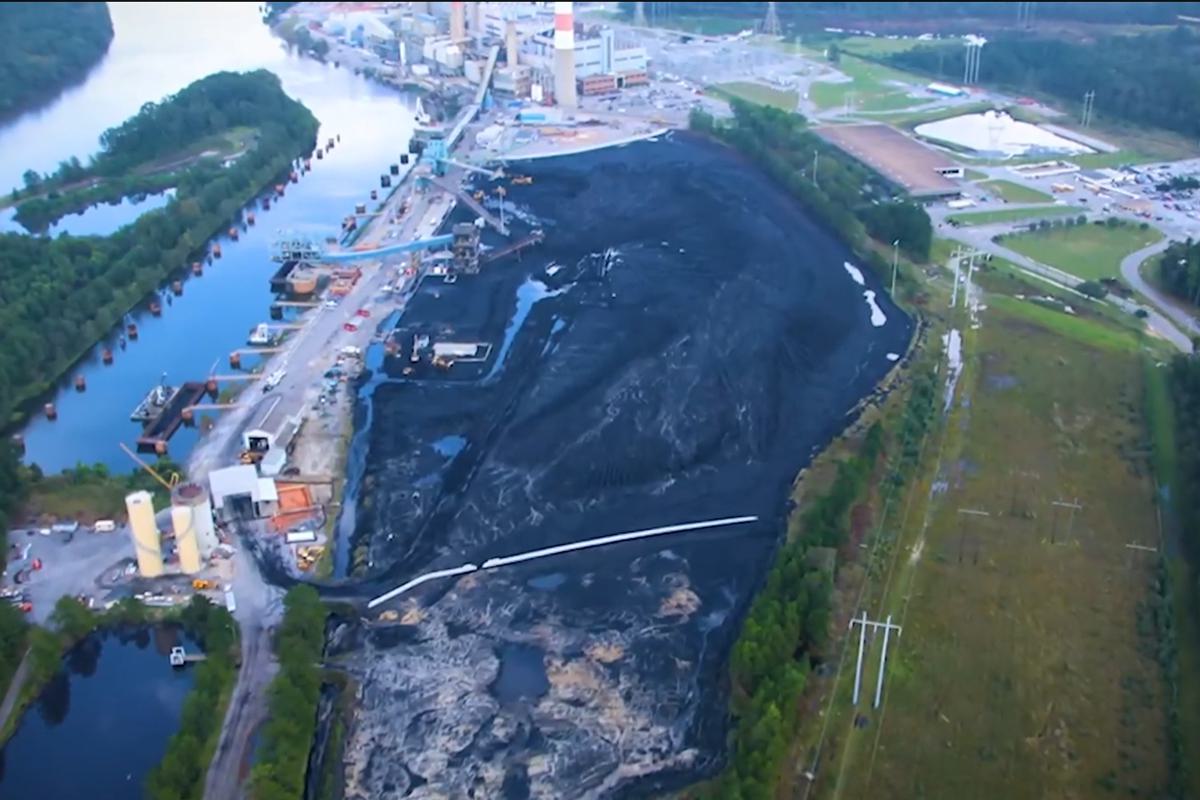A federal lawsuit filed by the Mobile Baykeeper against Alabama Power has been dismissed without prejudice. The lawsuit claimed the power company's plan to leave 21 million tons of coal ash at a plant north of Mobile would allow pollutants to seep into public waters.
U.S. District Judge Kristi DuBose dismissed the case Thursday due to a question of jurisdiction and timing, among other issues. The judge concluded that Alabama Power may still have time to remedy the matter at Plant James M. Barry Electric Generating.
Alabama Power has operated the plant since 1954. The plant produces coal ash and has been under fire since announcing plans to close coal ash ponds on site. The plant must comply with the Alabama Department of Environmental Management's (ADEM) coal combustion residuals (CCR) regulations, but there have been challenges.
According to court documents, Alabama Power first disclosed "closure-in-place" plans for Plant Barry in 2016. The power company amended those plans with details in 2019 to comply with ADEM's CCR surface impoundment closure regulations, which parallel regulations with the EPA. Following another amended plan in 2020, ADEM received public comment and held a public hearing in 2021.
Among those speaking out against Alabama Power's closure plans was a representative for Mobile Baykeeper. Despite opposition, ADEM permitted Alabama Power to close the Plant Barry ash pond.
"Alabama Power began closure-in-place activities in 2019 'and has been working diligently to implement the closure plan' since receiving the ADEM Permit for the Plant Barry Ash Pond," the latest order states. "Indeed, Alabama Power has already spent about $257 million in implementing the closure plan and expects to spend over $1 billion upon its completion."
In September 2022, Mobile Baykeeper filed suit against Alabama Power, claiming the closure of an unlined coal ash pond was unlawful and toxic.
"Baykeeper alleges that the plan leaves large quantities of coal ash below sea level and in contact with water, including groundwater, where it is leaching into public waters of the United States," the order states. "Baykeeper also asserts that future floods, storms, and hurricanes present a risk of catastrophic failure as any surrounding water level rise could elevate groundwater in the Plant Barry Ash Pond and cause the coal ash to spill into the Mobile River and Mobile-Tensaw Delta. Baykeeper alleges that Alabama Power's closure plan for the Plant Barry Ash Pond is in violation of the RCRA, 42 U.S.C. § 6901 et seq., and the Federal CCR Regulations, 40 C.F.R. § 257.50 et seq."
Meanwhile, the EPA sent Alabama Power a Notice of Potential Violations, and discussions are currently planned to remedy the possible violations the Baykeeper pointed out.
"Alabama Power Company sent a letter to the EPA accepting the agency's invitation to engage in continued discussions about our coal combustion residuals (CCR) program at Plant Barry," Alabama Power said in a statement to 1819 News. "It is expected these discussions will commence in January."
The EPA and the state of Alabama are also in a legal battle over ADEM's permitting program. The EPA claims the state's program is insufficient and has refused to approve the state's application process. The state has sued the EPA, but the District Court for the District of Columbia stayed with that suit until March 4, 2024.
Since there is a possible remedy between the EPA and Alabama Power, the judge in the Mobile Baykeeper lawsuit decided the litigation is not "ripe" for adjudication at this time. Furthermore, the Baykeeper is asking for the unlined coal ash pond to be removed, not covered and closed. But there is still a chance the EPA could approve Alabama Power's request to cover and close the pond, so it would be considered premature for the Court to decide ahead of the parties' discussion, the judge stated.
"Storing millions of tons of ash on the banks of the Mobile River is a catastrophic risk we can't afford to take," said Cade Kistler, Baykeeper at Mobile Baykeeper. "This decision doesn't change the fact that this coal ash is sitting in groundwater, leaching harmful pollutants, and risks a catastrophic spill from hurricanes or floods."
In the order, the judge made it clear that she believed the Baykeeper's pollution claim.
"This Court will not go down a rabbit trail of discounting members' fear of a catastrophic coal ash spill or concerns over invisible pollution," the judge wrote. "Nor will the Court use judicial notice to play hydrologist, as urged by Alabama Power, and conclude that certain pollutants cannot crisscross the Mobile-Tensaw Delta. At the motion-to-dismiss stage, general factual allegations of injury can suffice, so long as the complaint plausibly and clearly alleges a concrete injury. Glynn Env't, 26 F.4th at 1240. Ultimately, Baykeeper's declarations showing diminished present enjoyment in the area around Plant Barry speak for themselves."
However, the judge said a misstep may have been to the Baykeeper's detriment. DuBose said bringing a suit under a different subsection could have helped the Baykeeper avoid "traceability and redressability" problems they encountered when attempting to show violations of regulations by Alabama Power.
The order can be read in full below. A complete statement from Mobile Baykeeper can be read online.
Baykeeper Order by news on Scribd
To connect with the author of this story or to comment, email erica.thomas@1819news.com.
Don't miss out! Subscribe to our newsletter and get our top stories every weekday morning.










